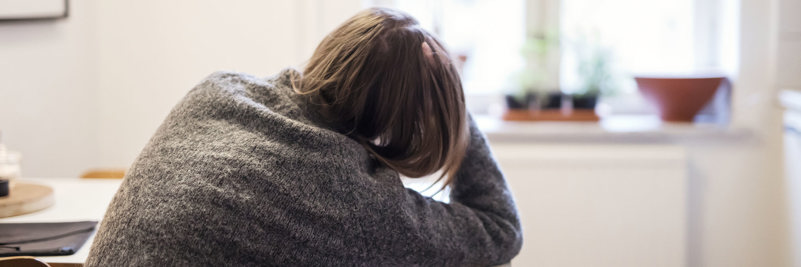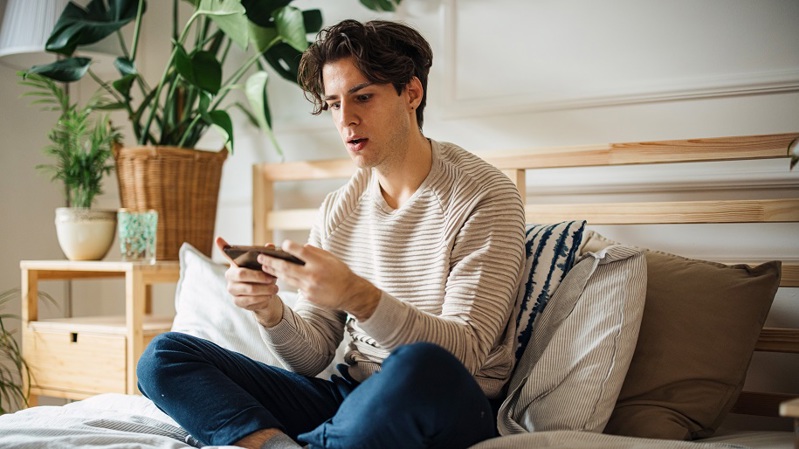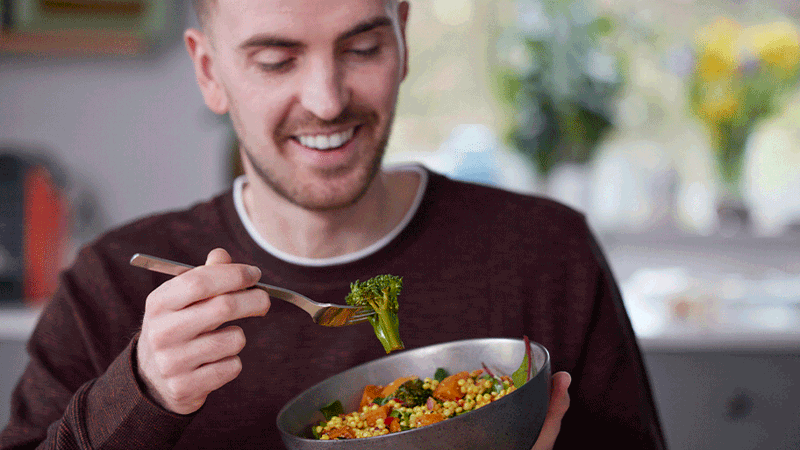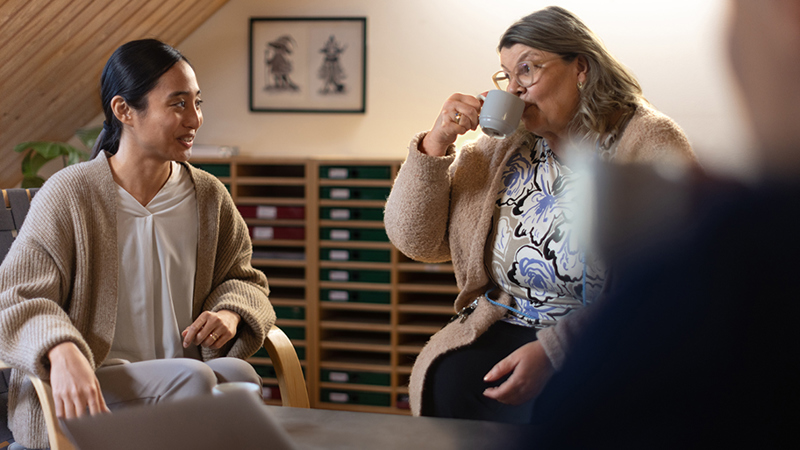Are you anxious? Here's how to ease the anxiety when it strikes
All of us experience normal anxiety from time to time. However, excessive anxiety can interfere with everyday life and can be directed at things that are not a threat. Anxiety disorder is the second most common mental health problem in the world after depression.

– Anxiety is a completely normal and coping emotion that is not to be feared. It is our body's way of telling us about potential dangers and helping us to avoid or deal effectively with threatening situations," says psychologist and psychotherapist Lotta Heiskanen from Focus Mind in Terveystalo.
However, if the anxiety is long-lasting and interferes with normal daily life, it may be a generalised anxiety disorder.
– In an anxiety disorder, the feeling of fear is intense, constant and no longer related to a specific situation. It interferes with daily life and causes people to avoid social situations, for example.
Anxiety is felt in body and mind
An anxious person is constantly scanning their environment for danger and may be sensitive to interpreting even neutral situations as threats.
– An anxious mind is filled with worrying thoughts, fears and concerns about what might happen in the future. It may be difficult to name the problems or there may be many of them, from work and money to relationships," says Lotta Heiskanen.
Anxiety also manifests itself in a variety of physical sensations.
– Sleep problems are a very important and obvious symptom of an anxiety disorder. Anxiety can also manifest itself as a fast heartbeat, a tight feeling in the chest and sweating.
Anxiety is an opportunity to get to know yourself and your story
Generalised anxiety disorder is often the result of a combination of factors. For example, it is known that hereditary factors predispose to different types of anxiety.
– Whether an anxiety disorder develops as a result of a genetic predisposition is influenced by many environmental factors, such as stressful life events. Psychological factors also play a role, such as growing up with intense stress without adequate support to structure or calm the situation. Parental rejection, criticism or lack of acceptance and warmth are all predisposing factors.
The development of an anxiety disorder is therefore highly individual.
– Anxiety is an opportunity to get to know yourself and your own story. Understanding what triggers, maintains and predisposes to anxiety is helpful in understanding anxiety, calming the mind and treating anxiety.
Don't be alone with anxiety: get help early
It is a good idea to seek help for anxiety if it is interfering with your ability to cope with everyday life or work.
– "Get rid of this feeling" is often what people want when they go to the doctor. However, this attitude to anxiety can make it worse, and it is more useful to learn to be in tune with difficult feelings. For example, you can be sufficiently afraid of a coronavirus to be motivated to protect yourself against it, and at the same time be able to maintain daily functioning and optimism. So you can feel fear but not be overwhelmed by it.
Psychological or psychotherapeutic treatment teaches you how to regulate your emotions together: for example, how to reduce feelings of anxiety and emotional reactions.
– At Terveystalo Focus Mind, anxiety treatment is guided by an anxiety treatment pathway based on current care recommendations, which ensures the quality and effectiveness of treatment. Patients get help from the right specialist at the right time, as well as high-quality information about their condition and its treatment in the Terveystalo app," says Lotta Heiskanen.
How to help yourself when anxiety strikes? Tips from the experts
You can also try to reduce anxiety yourself. The same methods don't work for everyone, so it's worth having the courage to try different things.
1. Recognise anxiety and treat it gently
- Try to find words for your fears
- Approach anxiety with curiosity and compassionate acceptance: don't criticise yourself for being anxious, but give yourself permission to experience it.
- Remember that you can cope well with anxiety
2. Concretise and reflect on the threat:
- What is the worst thing that could happen? What is the best-case scenario?
Is the threat real? - How would I deal with the consequences?
- Write down the times when the threats did not materialise!
3. Maintain a lifestyle and circadian rhythm that supports wellbeing
- Get adequate rest and regular sleep, eating and exercise
- Introduce breathing exercises and calm the body
4. Feed and nurture the mind
- Don't be alone - talk to people you trust
- Set aside time for yourself (e.g. 15-30 minutes a day to deal with your worries)
- Focus on the meaningful and rewarding things in your life
Remember that life is full of surprises: just when something good can happen!
Latest articles

Together towards a healthier workplace: The power of occupational health partnership
A healthy workplace is the result of collective effort, and Finnish business decision-makers share this view. Customer Relationship Director Terhi Nieminen explains how Terveystalo focuses on proactive measures and multidisciplinary collaboration, supporting the well-being of workplaces and employees comprehensively. This way, we create value that promotes sustainable success and addresses the challenges of the future working life.

Behavioral addictions have increased: "Addiction is a brain disease"
Particularly among young people, addictions to digital games and social media have increased following the COVID-19 pandemic.

Where did our attention go and how can we get it back?
We live in an era of overachievement and stimuli, which affects our ability to maintain attention, says Joakim Harju, a psychiatric nurse and paramedic at Terveystalo.

Four relaxation exercises for the whole family for the Christmas rush
Christmas can be a busy and hectic time for families with children. A moment of peace and quiet with your family is an invaluable opportunity to enjoy Christmas.

8+1 ways to improve your energy levels
Are you tired during the day or do you still have high blood pressure in the evening? Try these tips for a better state of alertness, advises doctor Sanna-Tuulia Mattilan from Terveystalo Focus Uni in Tampere.

Mental health-related absences reduced by 45% with brief psychotherapy - significant impact on other absences too
A study by Terveystalo* monitored the impact of brief psychotherapy for occupational health clients on sickness absence in 2019-2024.The study found that the use of brief psychotherapy reduced mental health-related sickness absence by 45% and other sickness absence by 19%. The study follows on from a similar study carried out 2 years ago and reinforces the importance of timely access to treatment for mental health symptoms.